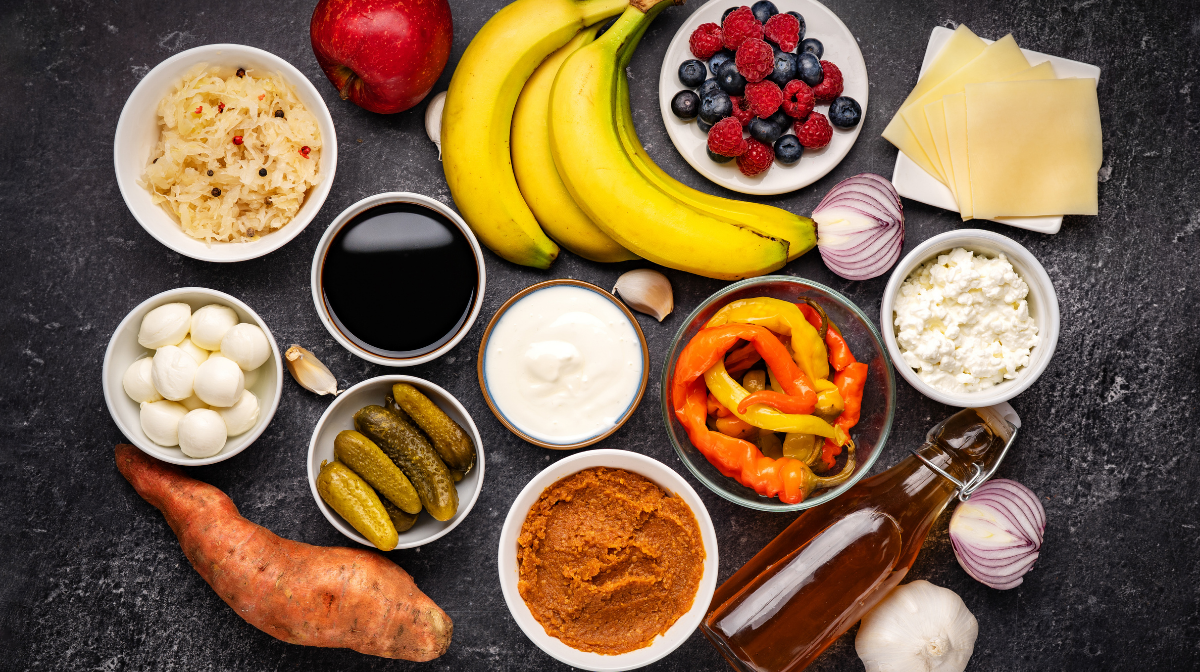Feeding your friends and foes – why the gut microbiome has become a nutrition focus
The following blog is a summary of key learning points from a talk given at Digestive Health and Wellbeing: The Patient Journey in 2021. This blog highlights the importance of nutrition in the shaping of the gut microbiome, including a focus on prebiotics and probiotics.
Meet the speaker
Dr Gemma Walton is a lecturer in metagenomics at the University of Reading. In the arena of gut health, her primary area of interest is the gut’s microbial community. In particular, Dr Walton studies how it supports health and how we can change this community through dietary intervention. Examples include the inclusion of prebiotics and probiotics as part of a balanced diet.
Dr Walton has studied the gut microbial community through experimental models of the large intestine, as well as through human intervention studies. These approaches allow greater exploration of how dietary changes could influence the community of bacteria in the gut, as well as how this could ultimately impact health and wellbeing.
Why the gut microbiome has become a nutrition focus
Dr Walton’s presentation takes a closer look at why the gut microbiome has become so central to our understanding of nutrition. The talk considers what gut microbiota do and how changes to our diet can alter our microbial communities. Dr Walton focuses on existing regimens and technologies, such as prebiotic and probiotic interventions, as well as postbiotics, as approaches to adjuvant therapies.
Summary points
The gut microbial community, which consists of trillions of bacteria, is increasingly recognised to play a significant role in host health. The ever-shifting community develops alongside us from birth, influenced by our lifestyles and importantly by what we eat. With the number of microbial genes outnumbering human genes, it is not surprising that this community can have a significant impact on our health. We can alter this community through changes in our diet, and as a result, impact our wellbeing.
Bacteria that inhabit the gut microbiome can use our non-digested foods for various purposes. From these substances, bacteria create end products, such as short chain fatty acids, that influence our health. As a result, our microbiota is important for immune support and pathogen protection. Our gut bacterial communities have an impact all over the body, influencing areas such as skin health, obesity and satiety, coughs and colds, to name just a few. There is strong evidence to suggest that gut microbial communities could have direct effects on host health.
Development of the gut microbiome
The human gut microbiome develops from birth. We have initial colonisers that are dependent on birth mode and from there, the microbiome goes on to respond to the diet. Clear differences are seen in the gut microbiome composition of breast-fed infants versus formula fed, for example. There are other factors affecting bacteria in the gut, such as physiochemical changes in response to digestion of food and microbial effects. This includes competition of microbes, as well as immunity and inhibition through microbial end products.
The end products of non-digestible carbohydrates fermentation can have numerous effects in the body. The process provides around 10% of human energy requirements and produces end products that can be metabolised further by gut bacteria. In contrast, end products of protein fermentation are generally associated with negative effects. Protein is important in the diet as it contributes to cell growth and repair, but too much can increase the fermentation of protein and undesirable end products.
Prebiotics and probiotics
While a high fibre diet is understood to be beneficial for health, not all carbohydrates are used by the body in the same way. This is why a tailored approach to dietary interventions may be appropriate. Use of prebiotics to supplement the diet may be beneficial because it is a selectively fermented non-digestible compound, proven to be beneficial to the host (Gibson et al., 2017). Studies into the role of prebiotics have revealed advantages such as reduced allergy development, demonstrating that microbiome composition is particularly important in the early stages of life (Cukrowska et al., 2020).
In contrast to prebiotics, probiotics are live microorganisms, that when administered in adequate quantities, elicit a beneficial effect on the host. Probiotics are strain-specific, known by their health effects. There is a common misconception that all fermented foods are probiotic, which is not correct. Benefits of probiotic interventions include systemic effects as a result of short chain fatty acid production, support of barrier function through the digestive system, positive modulation of the microbial community and reduced passage of inflammatory compounds into systemic circulation.
In Summary
We know that the gut microbiome community is important for supporting key areas of health and wellbeing. We also know that the microbial community can be affected by diet. Since changing the gut microbiome is associated with positive health outcomes, prebiotics and probiotics can be used as tools to modify microbial communities and elicit positive advantages in health and wellbeing. Looking further ahead, there are promising areas for future research for the systemic effects of the gut microbiota on the body.

